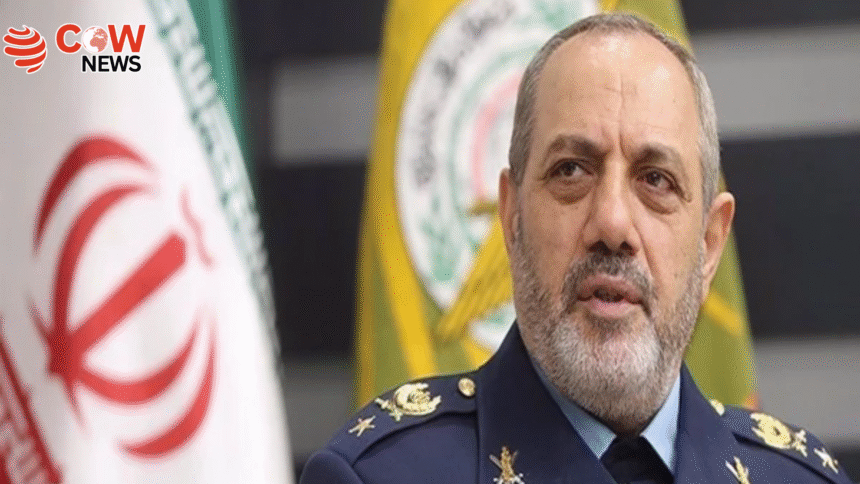TEHRAN:(TheCOWNews Digital)In a sharp escalation of rhetoric, Iranian Defense Minister Brigadier General Aziz Nasirzadeh has issued a stern warning to the United States and Israel, stating that any military aggression against Iran will provoke a decisive and powerful response. His comments come amid rising tensions in the region and growing uncertainty surrounding the revival of the Iran nuclear deal.
Speaking to the state-run news agency, General Nasirzadeh responded directly to recent remarks by the U.S. Secretary of Defense, accusing American officials of hypocrisy. “On the one hand, the U.S. speaks of negotiations; on the other, it fuels regional instability with threats and military posturing,” the defense chief said.
General Nasirzadeh emphasized that Iran would never initiate conflict but would not hesitate to retaliate with full force if war were imposed upon it. “If war is forced upon us by the United States or the Zionist regime [Israel], all enemy interests—military bases and strategic installations—will be targeted without hesitation,” he declared.
He advised American defense officials, especially newly appointed personnel, to study Iran’s 40-year history of resistance since the Islamic Revolution. “Iran is not a nation that bows under pressure,” he added, asserting that any miscalculation by Washington could spark a major conflict with unpredictable consequences.
Further raising concerns in Western defense circles, General Nasirzadeh revealed that Iran had recently tested a new ballistic missile capable of striking targets with one-meter precision at distances exceeding 1,200 kilometers. “This missile requires no reliance on external GPS navigation systems, making it resistant to interference or jamming from hostile powers,” he explained.
The announcement has further fueled anxieties in Washington, where diplomatic efforts to revive the 2015 Joint Comprehensive Plan of Action (JCPOA), also known as the Iran nuclear deal, appear to be faltering.
U.S. President Donald Trump—who returned to office earlier this year—said in a statement that the prospects of reaching a new nuclear agreement with Tehran are “rapidly diminishing.” He confirmed that the sixth round of indirect negotiations between Iranian and American delegations is scheduled to take place in Muscat on Sunday, but expressed skepticism over any breakthrough.
“While we remain committed to diplomacy, we are also preparing for all eventualities,” President Trump said. “Our personnel in Bahrain and Iraq have already received directives for a partial drawdown of non-essential diplomatic staff.”
Analysts believe the latest developments indicate a significant hardening of positions on both sides. Iran’s missile program continues to be a major point of contention for the United States, Israel, and Gulf allies, who argue it poses a serious threat to regional security. Iran, on the other hand, maintains that its military capabilities are purely defensive.
The renewed tensions have alarmed global observers, with European Union officials calling for restraint and urging both Washington and Tehran to return to the negotiating table in good faith.
As the Middle East stands on the brink of yet another potential military confrontation, experts warn that any misstep could ignite a broader regional conflict.
Iran has consistently demanded relief from U.S.-imposed economic sanctions and guarantees of non-aggression as prerequisites for any renewed deal. The U.S., however, insists that Iran must halt its uranium enrichment activities and missile development programs as part of any agreement.
With both sides entrenched and trust at an all-time low, the path forward remains uncertain. The coming days in Muscat may prove pivotal in determining whether diplomacy can prevail—or whether the region moves one step closer to war.







